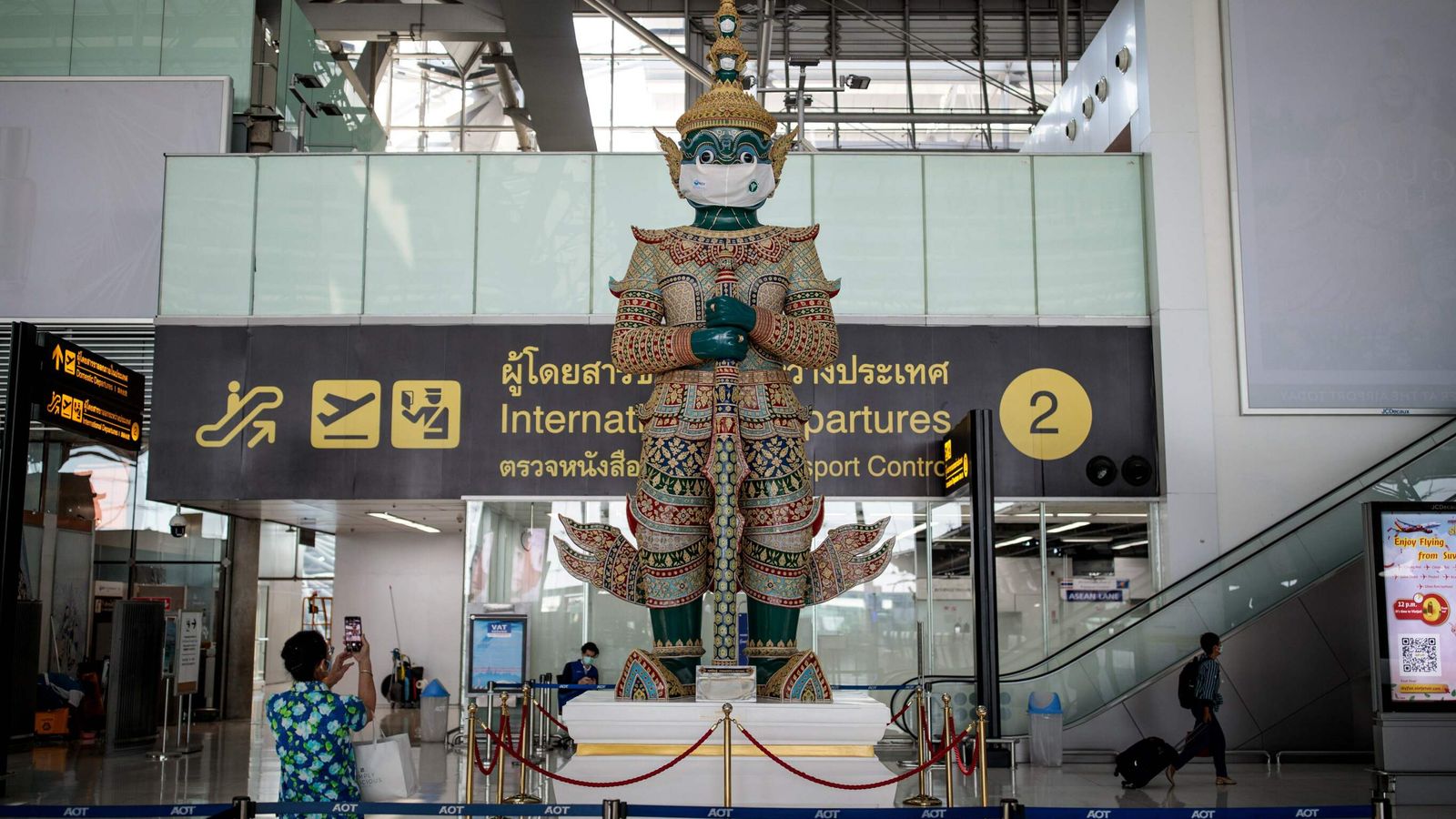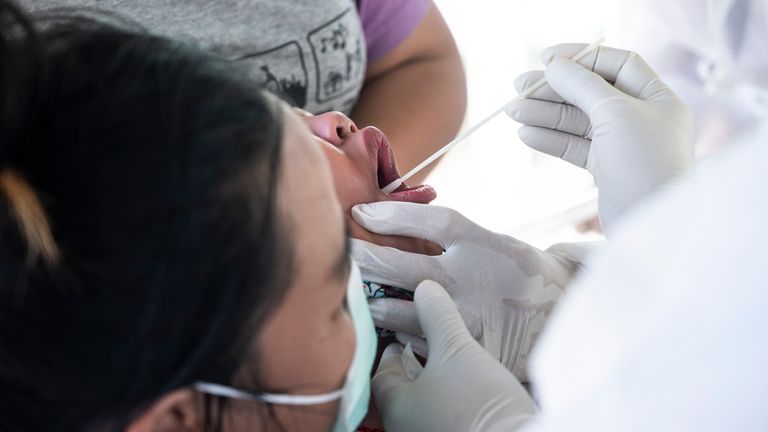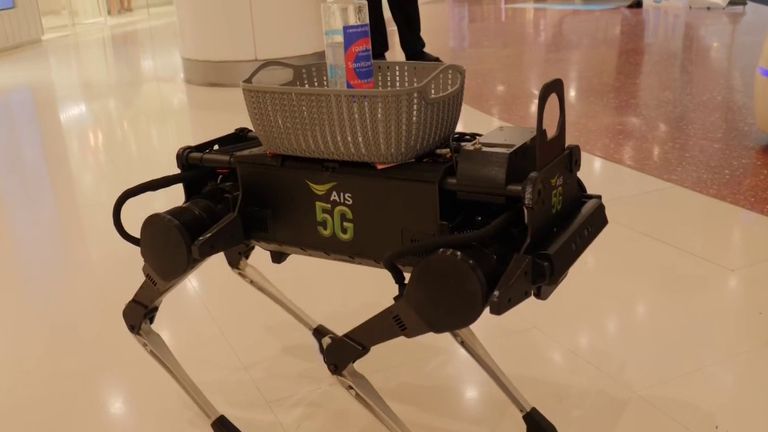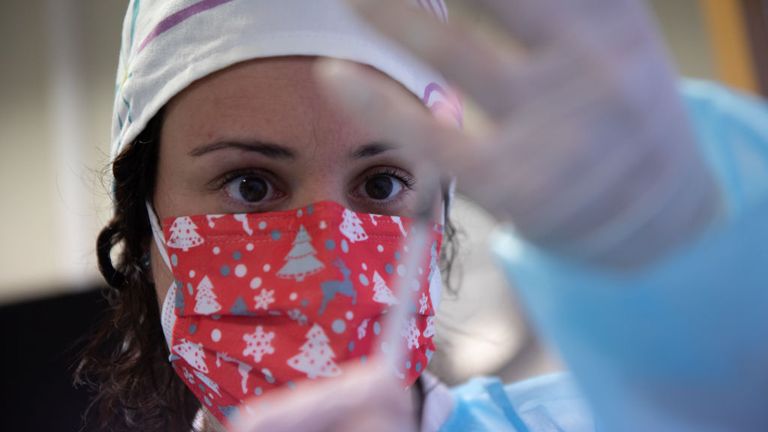Thailand has brought in a range of new restrictions after the country’s first coronavirus death in nearly two months.
Bangkok betting businesses will be shut, while bars, nightclubs and music venues in the capital will be forced to close at midnight until 4 January.
It comes as the government tries to contain an outbreak that has reached more than half of the country’s provinces, with 144 new infections being confirmed on Monday.
Public health minister Anutin Charnvirakul said he was undergoing two weeks of quarantine after exposure to an infected provincial governor, while house speaker Chuan Leekpai asked 29 parliamentary staffers to seek tests after meeting a person who contracted the virus.
Thailand, the first country outside China to report a coronavirus infection, has recorded just 6,285 cases and 61 COVID-19 deaths, having brought earlier outbreaks under control.
Its success has been attributed to tight restrictions on inbound travel and swift testing and contact tracing.
Bangkok’s tighter measures follow similar regulations in some of the 43 provinces that have reported cases since a big outbreak was discovered among migrant workers at a seafood market in Samut Sakhon 11 days ago.
A cluster has been found in the eastern province of Rayong linked to a gambling den, with 92 infections in three days and one death.
Pongsakorn Kwanmuang, a spokesman for the Bangkok authorities, said a field hospital would also be set up in the capital and the restrictions reviewed next week.
The outbreak could hamper efforts to revive a crucial tourist industry devastated by the pandemic, as authorities ease some restrictions on foreigners and offer incentives to boost domestic travel.
And Thailand is not alone in its efforts to combat a concerning new outbreak as 2020 draws to a close.
South Africa has banned all alcohol sales to help the country battle spike in COVID-19 cases amid the spread of a new coronavirus variant.
President Cyril Ramaphosa says new infections are “climbing at an alarming and unprecedented rate”, and new restrictions are to be imposed from Tuesday until at least 15 January:
- All indoor and outdoor events will be prohibited
- Masks are compulsory in public spaces, with arrests, prosecutions, fines and jail terms possible for those who refuse to wear one
- Nationwide curfew from 9pm to 6am, with nobody allowed outside their place of residence and non-essential establishments must close at 8pm
- Sale of alcohol will not be permitted and it cannot be consumed in parks and beaches
The head of the World Health Organisation has said it is vital to step up genomic sequencing worldwide to ensure that new variants are detected as the pandemic enters its second year.
Tedros Adhanom Ghebreyesus said that “only if countries are looking and testing effectively will you be able to pick up variants and adjust strategies to cope”.
And in Europe, Spain is facing a delay in a fresh delivery of the Pfizer/BioNTech vaccine, due to a Pfizer “logistics issue”, the country’s health minister said.
Salvador Illa says a temperature control issue during the process of loading and sending out the vaccine led to the incident, but the problem has now been resolved.
He said a new batch of the vaccine will now be delivered on Tuesday instead of Monday.



